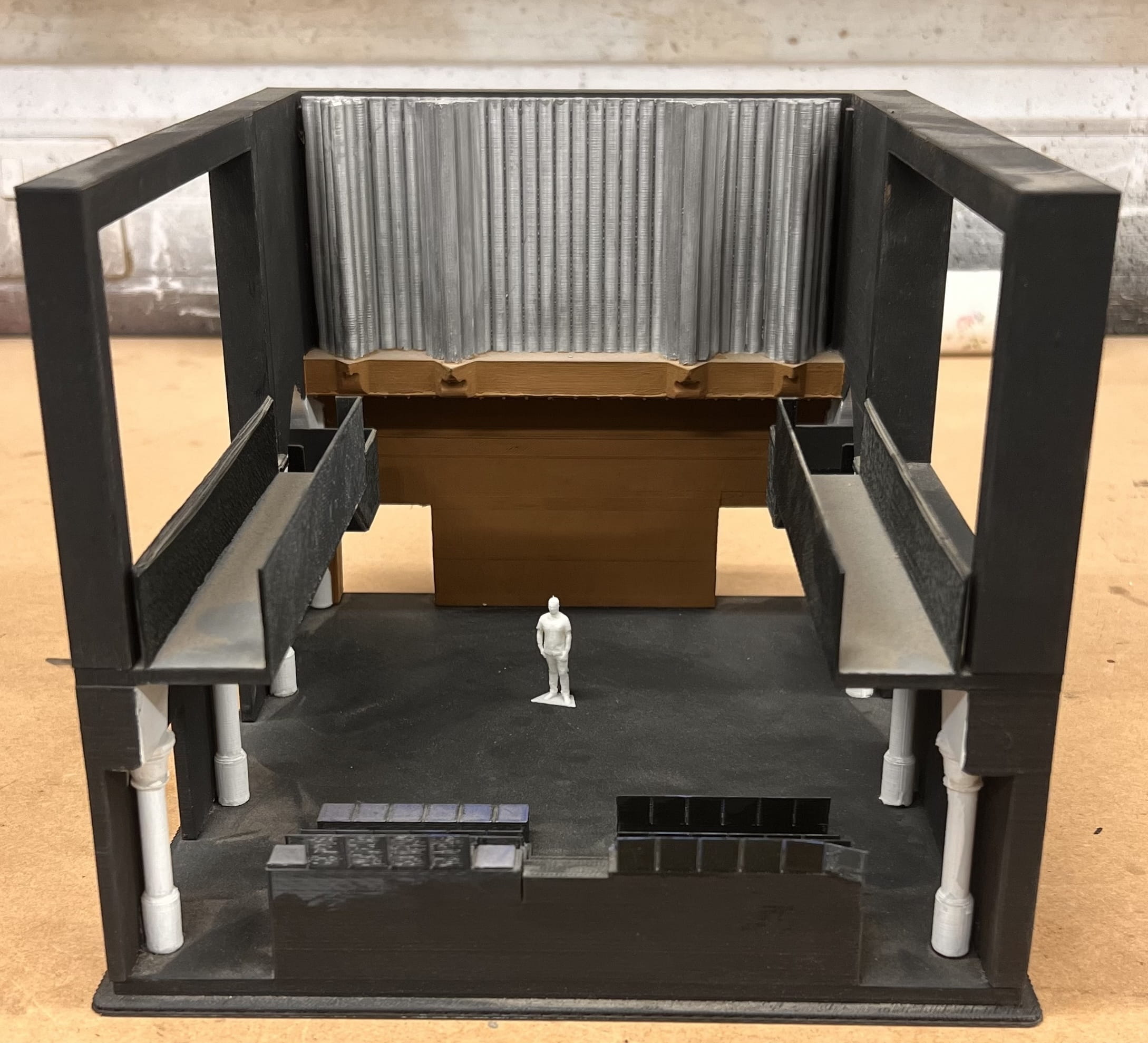As part of our Technician Commitment award we are showcasing the valuable role our technicians play across the University in helping Essex deliver excellence in research and excellence in education. In this blog we step away from the labs and onto the stage to find out Carlos Moral Reis is helping the stars of tomorrow learn their trade at East 15 Acting School.

What was your career background before working at the East 15 Acting School?
I have a background in theatre design and construction. I began working at the age of 18 in a scenic workshop in Lisbon, Portugal, where I painted backdrops for opera and ballet performances. At 21 I started studying set design at the Theatre Conservatoire in Lisbon. I have always had a passion for drawing on a large scale, and theatre design has allowed me to explore and develop this skill.
What is your role at East 15 and what are your main duties?
I am responsible for designing, constructing, and assembling the directed productions for third-year students at East 15's Southend-on-Sea home, Clifftown Theatre. Additionally, I am a set design mentor in the students' devised productions. I teach set design to the second and third-year Creative Producers and I provide a lecture on set design to most of the acting courses in Southend.
What do you enjoy most about your role?
What I enjoy the most is the creative freedom that I have to design and to interact with the students to share my passion for theatre in all aspects of production. I love the freedom to be creative at East 15. For me, creating a space or installation that will be used by actors is the greatest reward. Unlike other art forms, set design brings in another component of artistic input which is to define the actors’ behaviour in a certain space. It's exciting to imagine and create the challenges that the set will bring to the actors in order to accomplish the performance, and what it means inside of the concept of the show. I also enjoy researching and using a wide range of digital tools/apps to help me develop new ways of artistic expression. I use 3D scanning and augmented reality apps to understand how the set is going to work before it's assembled in the theatre. These apps allow me to materialize my experiments with my 3D printer. During lockdown, I took the printer home and used that time to design and print a 3D model of Clifftown Theatre on a scale of 1:50. Whenever I have time, I print set models to show the directors and better understand how they will look on a real scale. I also print specific props that are not available for purchase.

What are the biggest challenges of your job?
Managing the calendar and budget are the most significant challenges. Our calendar can be tight and often leaves us with little time to spare. To achieve our goals within the budget, we need to think creatively. Recycling set pieces and having a good stock of set structures are essential to making everything work in these circumstances.
What are your future aspirations in your role as a technician?
My future aspirations are to keep improving my design skills, learn new technologies, and explore different ways to enhance the visual aspects of performances. Developing the technical structure and equipment at Clifftown is always on my agenda.
If you received UKRI Funding from the Technician Commitment how has that helped in progressing your career?
I have received funding to purchase an iPad Pro. It is an excellent asset that allowed me to explore new ways of visualizing my work and create 3D scans/shapes of objects. The device has helped me to progress and express my ideas in new and exciting ways.







